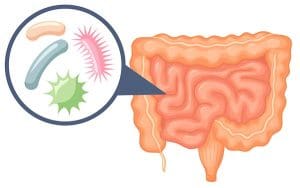
The human gut is home to trillions of microorganisms, collectively known as the gut microbiota. Among these microorganisms, there are various strains of probiotics that play a pivotal role in maintaining digestive health, supporting the immune system, and even influencing mental well-being. In recent years, the scientific community has made significant strides in understanding the diverse health benefits offered by different probiotic strains.
In this extensive guide, we will delve into the world of probiotics, explore the remarkable health benefits associated with various probiotic strains, and understand why these “good bacteria” are being hailed as a cornerstone of wellness and vitality.
What Are Probiotics? An Introduction
Probiotics are live microorganisms that provide health benefits when consumed in adequate amounts. They are often referred to as “good bacteria” because of their positive effects on human health. Probiotics can be found in certain foods, dietary supplements, and even as pharmaceuticals.
The key to understanding the health benefits of probiotics lies in recognizing the diversity of strains. Different strains of probiotics have distinct properties and offer specific advantages. Let’s explore some of the most well-researched probiotic strains and their associated health benefits.
Lactobacillus Strains: The Digestive Dynamo
Lactobacillus is one of the most common and well-studied probiotic genera. These strains are known for their ability to support digestive health.
- L. acidophilus: This strain is known for its ability to help maintain a balanced gut microbiota, which is essential for overall digestive health. L. acidophilus can be particularly beneficial for individuals with irritable bowel syndrome (IBS).
- L. rhamnosus: L. rhamnosus has been studied for its potential to reduce the severity and duration of diarrhea, especially in children. It’s also known to support the immune system.
- L. plantarum: L. plantarum is associated with improved digestion and has been studied for its potential to alleviate symptoms of irritable bowel syndrome (IBS) and inflammatory bowel disease (IBD).
Bifidobacterium Strains: The Immune System Allies
Bifidobacterium strains are primarily found in the colon and are known for their immune-boosting properties.
- B. longum: B. longum has shown potential in reducing inflammation and supporting gut health. It can be particularly beneficial for those with IBS and other digestive disorders.
- B. bifidum: This strain is known for its ability to support the immune system and protect against harmful pathogens in the gut.
- B. infantis: B. infantis plays a crucial role in promoting a balanced gut microbiota and is being studied for its potential in managing gastrointestinal disorders.
Saccharomyces Strains: The Gut Health Guardians
Saccharomyces strains are a group of yeast-based probiotics with various health benefits.
- S. boulardii: S. boulardii is a powerful probiotic that can help prevent and manage diarrhea, especially that associated with antibiotics. It’s also known for its potential in treating inflammatory bowel disease (IBD).
Streptococcus Strains: Oral and Gut Health Enforcers
Streptococcus strains are found in the mouth and gut and are known for their dual role in promoting oral and digestive health.
- S. thermophilus: S. thermophilus is primarily used in dairy fermentation and is known for its digestive benefits. It may help alleviate symptoms of lactose intolerance.
Lactococcus Strains: Supporting Gut and Immune Health
Lactococcus strains are often used in the production of fermented foods and dairy products.
- L. lactis: L. lactis has been studied for its potential in improving gut health and immune function.
Enterococcus Strains: Probiotic Workhorses
Enterococcus strains are hardy probiotics that can survive the harsh conditions of the digestive tract.
- E. faecium: E. faecium is known for its potential in supporting digestive health and may help alleviate symptoms of IBS.
Benefits of Probiotic Strains: A Comprehensive Overview
Now that we’ve explored several specific probiotic strains, let’s delve deeper into the myriad health benefits they offer:
Gut Health
Probiotics can help maintain a balanced gut microbiota, promoting digestion and reducing the risk of gastrointestinal disorders. They can be especially beneficial for individuals with conditions like irritable bowel syndrome (IBS) and inflammatory bowel disease (IBD).
Immune System Support
Many probiotic strains, such as Lactobacillus and Bifidobacterium, can enhance the immune system’s function. They help protect against harmful pathogens and boost the body’s defenses against infections and diseases.
Oral Health
Probiotic strains like Streptococcus thermophilus can promote oral health by reducing the risk of dental cavities and gum disease.
Mental Well-being
Emerging research suggests that the gut-brain connection, often referred to as the gut-brain axis, plays a crucial role in mental health. Some probiotics may influence mood and cognitive function, potentially reducing the risk of anxiety, depression, and other mental health conditions.
Infection Prevention
Probiotic strains, including S. boulardii, can help prevent and manage various infections, such as diarrhea and urinary tract infections (UTIs).
Allergy Reduction
Some probiotic strains may help reduce the risk of allergies, including food allergies, by regulating the immune system’s response to allergens.
Skin Health
The balance of gut bacteria can influence skin health. Probiotics may help alleviate skin conditions like acne and eczema.
How to Incorporate Probiotic Strains into Your Diet
Probiotic-rich foods and dietary supplements are two primary ways to incorporate probiotic strains into your diet. Here are some options for adding probiotics to your daily routine:
- Yogurt: Yogurt is one of the most well-known probiotic foods, containing strains such as Lactobacillus bulgaricus and Streptococcus thermophilus. Look for yogurt labeled as containing “live and active cultures.”
- Kefir: Kefir is a fermented milk product that typically contains various probiotic strains, including Lactobacillus and Bifidobacterium species.
- Fermented Foods: Foods like sauerkraut, kimchi, and miso are fermented with probiotic strains. These foods can be excellent sources of beneficial bacteria.
- Dietary Supplements: Probiotic supplements are available in various forms, including capsules, powders, and liquids. They provide concentrated doses of specific probiotic strains.
- Prebiotic Foods: Prebiotics are non-digestible fibers that feed the beneficial bacteria in your gut. Foods like garlic, onions, leeks, and asparagus are rich in prebiotics.
- Fiber-rich Foods: A diet high in fiber can promote the growth and activity of beneficial gut bacteria. Incorporate whole grains, legumes, fruits, and vegetables into your meals.
Probiotics Side Effects & Precautions
While probiotics offer a range of health benefits, it’s essential to exercise caution and consider the following factors:
- Individual Response: The effects of probiotics can vary from person to person. Some individuals may experience gastrointestinal discomfort when starting probiotics, while others may not. Consult a healthcare professional if you have concerns about probiotic supplementation.
- Quality and Safety: Ensure that the probiotic supplements you choose are of high quality and from reputable sources. This helps avoid contamination and ensures the viability of the probiotic strains.
- Dosage and Timing: The appropriate dosage and timing of probiotics can depend on the specific strains you’re using and your individual health needs. Follow the recommended guidelines on the product label or consult with a healthcare provider.
- Health Conditions: Individuals with certain health conditions, such as a weakened immune system or a history of severe allergies, should consult a healthcare provider before starting probiotics.
- Medication Interactions: Some medications may interact with probiotics. If you are taking prescription medications, consult your healthcare provider to ensure there are no contraindications.
The Future of Probiotic Research
The field of probiotic research is continually evolving, and ongoing studies continue to uncover new health benefits associated with probiotic strains. Researchers are exploring the potential of probiotics in areas such as weight management, cancer prevention, and even metabolic health.
As the understanding of the gut microbiome and probiotics deepens, we can anticipate more tailored probiotic recommendations for specific health conditions and a broader range of probiotic strains and products in the market.
Probiotics Conclusion: Nurturing Your Gut for Optimal Health
The world of probiotics is a vast and exciting one, filled with a diverse array of beneficial microorganisms that contribute to various aspects of human health. From supporting digestion and the immune system to influencing mental well-being and reducing the risk of allergies, probiotic strains are emerging as indispensable components of overall wellness and vitality.
By incorporating probiotics into your daily routine through food and supplements, you can nurture your gut health and enjoy the numerous benefits these “good bacteria” provide. As the science of probiotics continues to evolve, the future looks promising for even more personalized and effective probiotic interventions to promote well-being from the inside out.
References
- Healthline
- Harvard
- WebMD
- Health Benefits of Probiotics: A Review
- Beneficial Properties of Probiotics
- Probiotics: mechanism of action, health benefits and their application in food industries
- Probiotics, their prophylactic and therapeutic applications in human health development: A review of the literature
I’m not just a supplement analyst. I’m an extremely qualified one! I am a Certified Nutrition Coach (CNC) and actually received my certification directly from the National Academy of Sports Medicine. I am also a Nutrition & Wellness Consultant, certified by the American Fitness Professionals Association (AFPA).



